I am using Firebase to store users with their last scanned latitude and longitude.
An entry looks like this:
"Bdhwu37Jdmd28DmenHahd221" : {
"country_code" : "at",
"firstname" : "John",
"gender" : "m",
"lat" : 11.2549387,
"lon" : 17.3419559
}
Whenever a user presses a specific "search" button, I want my Firebase function to fetch the people nearest to the person who sent the request.
Since Firebase only allows for querying after one field, I decided to add the country_code, to kind of have some range-restrictions and query for that field. But it is still super slow when I load every user of a specific country and then check for the smallest distance between a given user and all the other users in the same country.
Already with 5 users, the function takes like 40 seconds to achieve the results.
I have also read about compound Indexes, but I would need to somehow combine the latitude and the longitude and query for both fields.
Is there any way to either get a second and third query involved here (e.g. search for the same country_code, and then for a similar longitude and latitude) or do I have to solve this inside my server code ?
